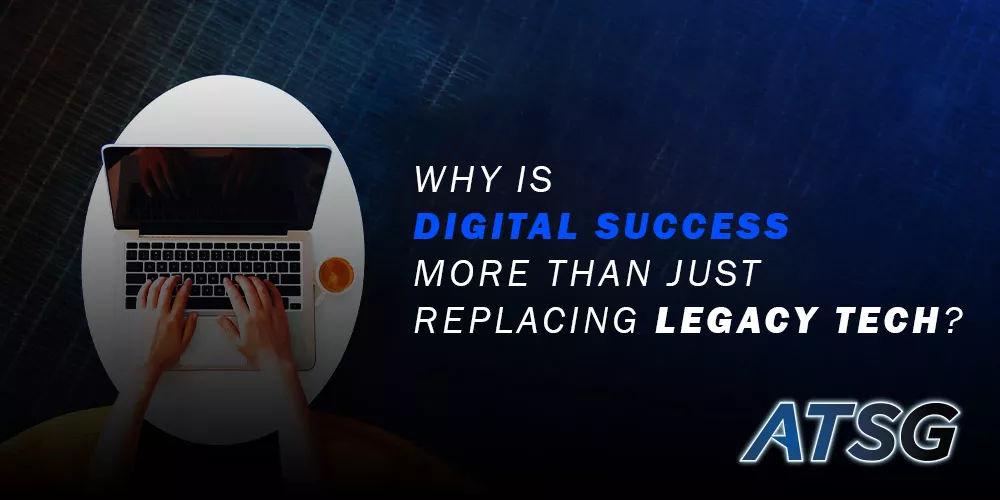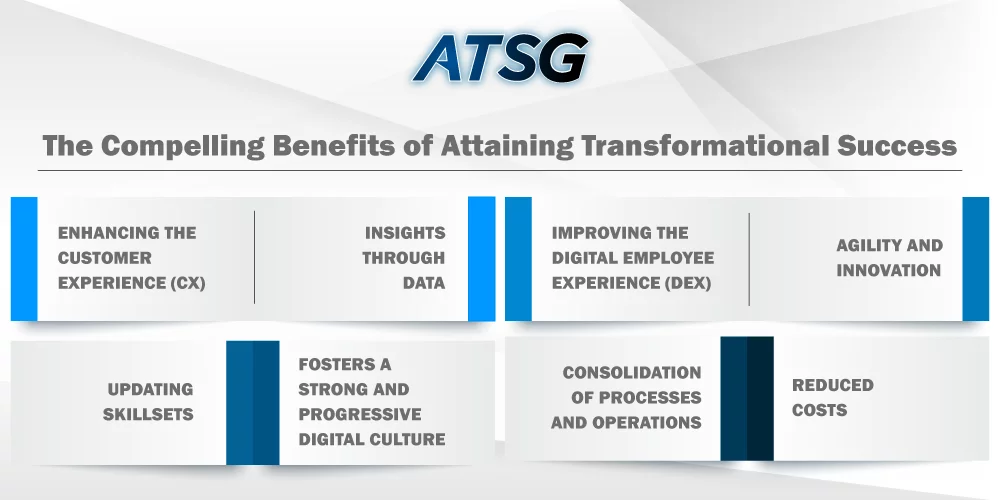Despite numerous discussions, understanding the impact of digital transformation has been a challenge for organizations. Business leaders are “pulled in multiple directions” with competing demands to achieve successful transformations. Digital transformation is a multi-faceted journey, with goals adjacent to the industry and digital maturity. However, technology has been the center of progress for digital transformation success.
Companies are facing pressure to become digitally active, transforming their central corporate strategy. One of the most effective strategies for achieving digital transformation in 2023 is to opt for an outsourcing provider. Delegating the task to technology experts can improve the core business and speed up the transformation process.

Exploring the Era of Digital Transformation
Digital transformation is the integration of technologies into different areas and processes of an organization. With the rise of economic uncertainty and inflation, companies look for cost-effective ways to enhance operations, innovate and maintain quality.
Having a digital transformation strategy has become essential for organizations to achieve their desired goals.
How is the Digital Age Impacting Business Growth?
Digital transformation has encompassed every aspect of business, ranging from day-to-day interactions to complex technologies, tools, and workflows. Digital technologies have reshaped the entire business landscape and enabled countless organizations to transition toward digital channels. Cloud migration, automated power tools, and innovative employee-centric strategies have been the key enablers of digital transformation.
The Compelling Benefits of Attaining Transformational Success
Adopting and adapting to “the digital era” is crucial for businesses to navigate their way to connect with customers, impact workforces, and enhance business outcomes. Digital transformation comes packed with benefits that propel organizations “up a notch” in the present hyper-competitive market.

Enhancing the Customer Experience (CX)
Customer experience is at the heart of digital transformation, especially for customer-facing industries. The primary focus for organizations is to introduce cutting-edge technology, and improve the customer experience. Therefore, developing digital tools to facilitate customers can enhance their journey and life cycle.
Insights through Data
In businesses, only two things really matter at the end of the day; costs and revenue. This makes it possible to integrate massive business changes through data-based insights. Using these insights can help businesses optimize their strategies and processes for better outcomes. The impact of data in decision-making, and data-driven organizations can lead to a higher Return on Investment (ROI) at a faster rate.
Improving the Digital Employee Experience (DEX)
Organizations are shifting towards people-centric strategies that can help improve the employee experience. Digital transformation provides the tools and applications that can improve the work culture, and streamline workflows as well as processes. With the right transformation tools and training, employees can break collaboration and communication gaps.
Agility and Innovation
An agile organization is better equipped to navigate uncertainty, define responsibility and accountability, and mitigate risks. The challenge of an ever-evolving digital landscape leaves organizations no choice but to digitally transform. Digital transformation can help businesses find innovative methods to spot opportunities and become up-to-date with the latest market demands.
Updating Skillsets
As digital technologies continue to go rapidly, demands for advanced IT skills have grown. The future of any digital business in 2025 is heavily built upon “soft skills”, such as critical thinking, self-management, active learning, etc. Digital transformation demands new skill sets among employees at all levels, across the organization.
Fosters a Strong and Progressive Digital Culture
What’s central to establishing a flexible work environment is cultivating a strong digital culture. Merely having updated technology is not enough, and an organization must adopt a corporate culture that embraces change. A culture that immerses the workforce in a digital learning environment is a significant benefit. It helps upskill employees for years ahead and adapts to different working styles.
Consolidation of Processes and Operations
By going digital, organizations can bring together more than just their workforce. This includes social media, analytics, project management interfaces, and more. Consolidation of a company’s processes and operations enables the business to connect with its target audience and consumers at a whole new level. Digital transformation brings in intelligent tools, like AI and ML, to accelerate business growth and decision-making.
Reduced Costs
One of the major objectives of digitally driven models is the optimization of business processes to reduce costs. Data storage and cloud computing can help businesses save resources, especially for intricate processes. Moreso, the usage of software to automate or train employees for processes becomes a valuable asset. It allows companies to cut the budget allocated to these areas, and use it for other core operations.
Outsourcing Digital Transformation
Companies, regardless of the industry, migrate towards digitization in a highly competitive global market. For organizations to sustain growth and achieve high degrees of market penetration, outsourcing can be a great starting point.
- Outsourcing digital transformation helps organizations optimize budgets, reduce costs in technology, and better adjust to the needs of an organization.
- In-house development can be expensive, but outsourcing can present a solution within the budget, through dedicated and talented specialists.
- Having expert insight can be a great advantage for the business, giving it room to gain quality and confidence for the product or service within the market.
- Outsourcing can allocate innovative solutions and resources toward the organization, giving businesses time to focus on their core activities.
- Project-based service providers can also be helpful in achieving specialized outcomes and processes, without having to train an entire in-house team.
ATSG’s Vision as a Managed Services and Tech Solutions Provider
Organizations are facing a crucial moment to modernize and adapt to the digital age in today’s highly competitive markets. The process of digital transformation can be daunting and expensive, if not carried out by specialists.
Due to this, ATSG helps organizations transform in reliable and efficient ways while remaining within the allocated budget. ATSG offers deployable solutions that facilitate organizations toward their needs. Solution service providers, like ATSG, come in handy with customized techniques to overcome the challenges of organizational processes. In addition, the company provides expert opinions and advice that can result in the effective execution of Digital Transformation.
Conclusively, digital transformation is not just about technology, but about organizations and people working towards their defined goals. The transformation journey benefits businesses in becoming efficient and effective, despite the growing market competition. The impact of digital transformation on businesses cannot be ignored. Having experts and managed service providers like ATSG can help cater to, and manage business operations while achieving a successful transformation to the digital era.




